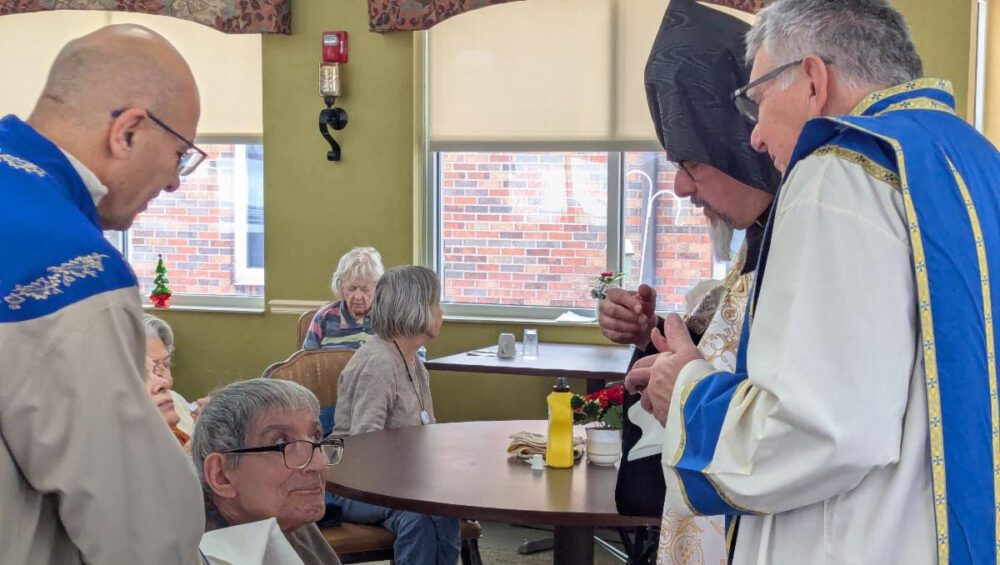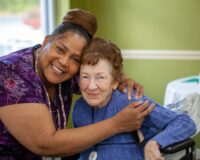As our loved ones age, it’s natural to notice changes in memory or behavior. However, when these changes begin to interfere with daily life, they may be early signs of dementia—a group of cognitive conditions that includes Alzheimer’s disease. Recognizing these signs early is critical for getting the right care, ensuring safety, and helping seniors maintain quality of life for as long as possible. At Manoogian Manor, we understand the emotional weight that comes with identifying potential symptoms in someone you love. This guide is here to help families understand the early warning signs of dementia and what steps to take next.
1. Memory Loss That Disrupts Daily Life
Occasional forgetfulness is normal, but dementia-related memory loss is more frequent and persistent. It often involves forgetting important dates, repeating the same questions, or relying increasingly on notes or loved ones to remember tasks. For example, your parent might forget their doctor’s appointment even after several reminders, or repeatedly ask, “What day is it?” even after being told moments ago.
At Manoogian Manor, our team is trained to recognize and gently address these patterns, helping families identify when memory changes may indicate something more serious.
2. Difficulty with Planning or Problem-Solving
Early dementia can interfere with the ability to develop and follow plans, work with numbers, or complete familiar tasks that require organization. If your loved one suddenly struggles to follow a recipe they’ve used for decades or cannot manage monthly bills, it could be more than a lapse in attention.
In assisted living communities like Manoogian Manor, we often see these signs emerge in residents who once managed their household independently but begin to withdraw from responsibilities due to confusion or frustration.
3. Trouble Completing Familiar Tasks
Seniors in the early stages of dementia may find it difficult to complete tasks they used to do easily, such as driving to a familiar location, preparing a favorite meal, or managing personal hygiene. For example, your mom may get halfway through making her morning coffee and then forget what comes next.
At Manoogian Manor, we provide discreet support with daily tasks, ensuring dignity and independence while addressing evolving care needs.
4. Confusion with Time or Place
Losing track of dates, seasons, or the passage of time can be an early dementia sign. A loved one may forget where they are, how they got there, or what day it is—even during familiar routines. For instance, your dad might think it’s nighttime in the middle of the afternoon or get disoriented while walking around the block.
Our secure and structured environment at Manoogian Manor helps reduce anxiety for those dealing with these disorienting moments by offering predictable schedules and visual cues.
5. Changes in Mood, Personality, or Behavior
Dementia can bring unexpected mood swings, increased irritability, confusion, or withdrawal from activities they once enjoyed. If your once-social loved one suddenly avoids gatherings, seems unusually paranoid, or has sudden outbursts, these could be early signs of cognitive decline.
At Manoogian Manor, we offer compassionate memory care that is sensitive to these emotional shifts, with programs designed to ease agitation and enhance emotional well-being.
6. Poor Judgment and Decision-Making
Making poor financial decisions or exhibiting uncharacteristically risky behavior may indicate cognitive issues. For example, your parent might give large sums of money to telemarketers, forget to pay bills, or leave the stove on unattended.
Our caregiving staff is trained to recognize changes in judgment and intervene respectfully when safety becomes a concern.
7. Difficulty with Words and Communication
Struggling to follow or join conversations, repeating oneself, or using incorrect words are all signs to watch for. A person might call a watch a “hand clock” or have trouble following simple storylines or instructions.
At Manoogian Manor, we encourage communication and social interaction through personalized engagement activities designed for all stages of cognitive health.
What Families Can Do
Recognizing early signs of dementia is only the beginning. Here’s what you can do if you suspect cognitive decline:
-
Schedule a Medical Evaluation – Early diagnosis allows for more treatment options and planning. Encourage your loved one to visit a neurologist or primary care physician.
-
Keep a Symptom Log – Document behaviors, patterns, and frequency to provide your doctor with helpful insights.
-
Stay Connected – Be patient, offer reassurance, and try to remain actively involved in their care and daily life.
-
Seek Support – Reach out to senior living communities like Manoogian Manor that offer memory care services and professional guidance.
At Manoogian Manor, we believe that early intervention is key to supporting seniors with dementia and their families. Our team works closely with families to recognize early signs and provide compassionate, personalized care that allows residents to feel safe, respected, and empowered. If you’re noticing changes in a loved one and wondering if it might be time for additional support, we’re here to help you navigate that journey with clarity and care.
Learn more about our memory care programs and supportive services at https://manoogianmanor.com.





